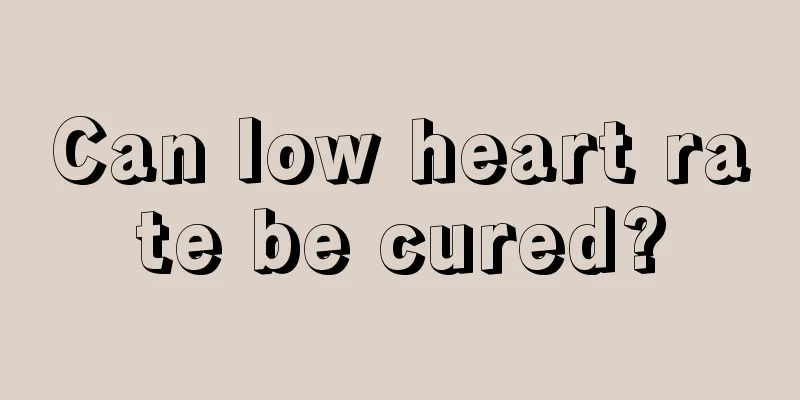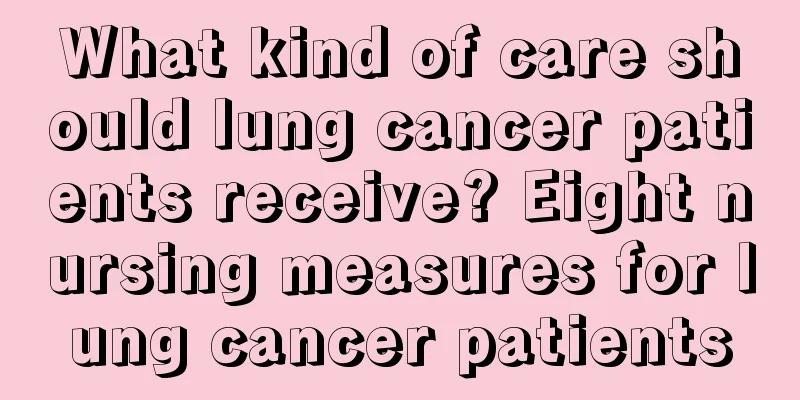Can low heart rate be cured?

|
There are always some heart disease patients in life. The first symptom of heart disease patients is irregular heartbeat, especially those patients with heart failure. Their heart rate will be particularly low when the disease occurs. Because our normal heart rate is 60 to 100 beats per minute, and those patients with low heart rate have a heartbeat of less than 60 beats per minute, which is very dangerous. So can this disease of low heart rate be cured? The most common causes of bradycardia are pathological sinus bradycardia, sinus arrest, sinoatrial block, and atrioventricular conduction block. Pathological sinus bradycardia is characterized by a slow heartbeat with uncomfortable symptoms. The causes are often sick sinus syndrome, acute myocardial infarction, hypothyroidism, increased intracranial pressure, or the use of drugs that slow down the heart rate (such as bisoprolol, isopamine, digitalis, reserpine, etc.). Sinus arrest, sinoatrial block, and atrioventricular block are characterized by prolonged heart arrest. The causes of this condition include sick sinus syndrome, degenerative changes in the conduction system, congenital atrioventricular conduction tissue, myocarditis, myocardial infarction, etc. An arrest time of more than 3 seconds is very dangerous and may cause malignant ventricular arrhythmias and lead to sudden death. Patients with symptomatic bradycardia, especially those that affect their quality of life, or whose heart stops beating for more than 3 seconds, or who have transient blackouts or syncope, should receive active treatment. Generally, the normal heart rate is 60-100 beats/minute. The heart rate will change due to weather, heat, mood, emotion, stress, diet, etc. Please test your heart rate by yourself. If it is within this range, it is normal. Please do not be overly anxious or worried. If it is lower than this range and the patient's symptoms are very obvious, no special treatment is needed and observation is the main treatment. If accompanied by discomfort symptoms and the heart rate is lower than 50 beats or even lower, it is recommended to go to the hospital for some corresponding examinations. Use a 24-hour dynamic electrocardiogram to check the cause of bradycardia and deal with it in a timely and targeted manner. A low heart rate is not an absolute contraindication for surgery. Some people with particularly strong heart functions have a low heart rate. It is said that for Liu Xiang, a heart rate of 30 beats per minute can meet the body's needs. However, under anesthesia, a person's heart rate will indeed decrease. If undergoing general anesthesia surgery, one needs to be alert to the possibility of cardiac arrest. Fitting a pacemaker should solve this problem. Suggestions: If the new function is very good and the heart rate is not particularly low, general anesthesia can be considered; if the heart rate is particularly low, it is recommended to solve the bradycardia problem first and then consider surgery. |
<<: Can allergies cause a fast heart rate?
>>: A 25-year-old guy's heart rate is only 52
Recommend
What should I do if I have advanced lung cancer and bone metastasis?
Bone metastasis is common in the late stage of lu...
What to do if kidneys hurt from holding urine
According to normal human physiological habits, w...
Can metronidazole cure acne?
Acne is a very common skin problem in daily life....
How to treat eczema during pregnancy?
Pregnancy eczema is prone to occur in the late st...
What are the symptoms of late-stage cardia cancer?
Among the many cancer diseases, cardia cancer may...
Wonderful ways to use bananas
Did you know? Banana is called the "fruit of...
Late recurrence of endometrial cancer
How long does it take for endometrial cancer to r...
6 issues that should be paid attention to in lymphoma chemotherapy
Before chemotherapy, lymphoma patients should und...
Swollen and painful wrist joint
As we all know, joints are the most important lin...
How to treat calf muscle cramps
For people who exercise regularly, it is common t...
Can white spots on the skin be cured?
White spots on the skin are what we often call vi...
How much does minimally invasive surgery for thyroid cancer cost?
How much does minimally invasive surgery for thyr...
Are orthodontic teeth prone to loosening?
Orthodontics actually refers to the correction of...
How to exercise for stage III nasopharyngeal cancer
It is not suitable for strenuous exercise, so it ...
What dishes are easy to digest when the stomach is not feeling well
Friends with poor stomachs should pay more attent...









